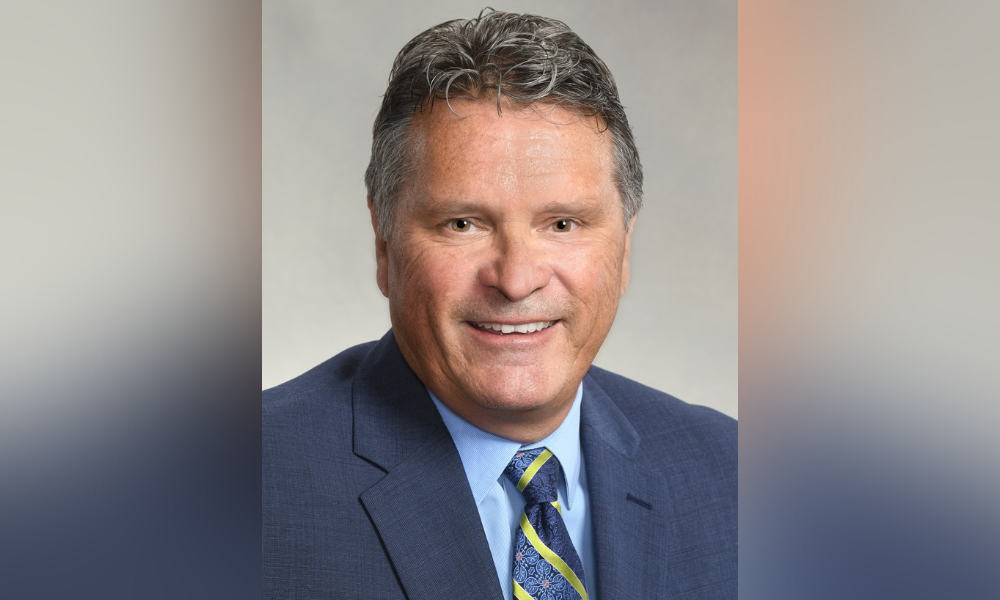It has undergone a recent rebrand

RDOOR Housing Corp. – one of the nation’s largest non-profit providers of affordable housing in Indiana - is poised to add more development in the Midwest and beyond this year, officials told Mortgage Professional America.
The group was formerly known as Merchants Affordable Housing Corp. prior to its recent rebranding. “We shared a name with Merchants Bank of Indiana and Merchants Capital Corp.,” Bruce R. Baird (pictured), the president and CEO, told MPA during a telephone interview. “Merchants Capital is a national multifamily lender and very, very substantial organization with offices in over 20 cities. So that was creating a little bit of confusion. So we changed the name to eliminate any confusion that might be out there that we are a bank, and then something that would describe who we are, what we are, and where we’re headed in the future. We’ve been a growing non-profit with a mission for affordable housing, and we think RDOOR is a good name for our future growth.”
The name change does not imply a cutting of ties with the Merchants-named entities, he stressed: “Absolutely not. We work very closely with them. They give us a great deal of support. We borrow from them, of course, for multifamily properties. They provide a great deal of support to our organization.”
How big an issue is homelessness in the Midwest?
Statistics yield reasons for the focus on Indiana. The state has the highest housing cost burden among all Midwest states for the lowest-income residents, with 72% of these households spending more than half their income on housing. RDOOR aims to bridge the affordable housing gap and make low-income housing not just more available, but sustainable, in the state and across the nation.
Yet plans now call for expanding construction of affordable housing throughout the Midwest and beyond. The ambitious plans come on the heels of a banner year for the organization. Last year alone, RDOOR supported 363 households exiting homelessness, including 292 permanent housing placements through HoneNow Indy. As a result, RDOOR was awarded $8 million in grant funds to support those experiencing homelessness with placement in permanent housing.
“We currently have development under way in South Carolina, so we’ve branched out very far away,” Baird said in alluding of future expansion. “But we’ve developed a lot in doing this work, plus we have a talented staff that knows how to do development work, either acquiring properties and renovating them or building from scratch. So we have a lot of the expertise, we have resources that come from the bank and from other organizations – foundations, city governments, others. We have the right mix to be successful at this in other states and other jurisdictions.”
Last year, RDOOR preserved more than 350 units of affordable housing that were at risk of defaulting or converting to market rate, bringing the total number of affordable units serviced by RDOOR to 3,000, according to the organization’s literature.
What is an example of ardor?
Baird noted the organization’s new name is a homonym of the word ardor “which means passion. We put a ‘door’ in it, since we provide housing. And that’s how we came up with it.”
The dark days of the COVID-19 pandemic helped shed light on the organization’s work with IndyNow focused on providing permanent multifamily units to those who found themselves homeless. “It’s been very, very successful, especially in the pandemic years when so much was turned upside down,” Baird said. “We helped over 292 households get housed that had formerly been homeless.”
While the affordable units are apartments, the goal is to guide many of those tenants to eventual homeownership, Baird said. He explained how the organization goes about housing the homeless: “There are housing authorities, of course, and various affordable housing communities. But oftentimes, there are barriers for individuals to actually get housed, get a lease, get an apartment, fill out applications, pay deposit, pay application fees. We provide a support system that bridges the challenge, and individuals or families may have to get a permanent place to live, either with a private landlord or a public landlord or a subsidized property,” he said. “We provide that level of support that they need to get housed, to get into a unit, and then some additional support after they’re in to keep them in the unit and keep them successful in being a renter or homeowner – whatever the case may be.”
The organization was launched in 1987 as Kenod Place Inc. to develop a 74 unit 202-Section 8 elderly housing project located in downtown Indianapolis. In 1991, the non-profit developed another 23 units of elderly housing next door to Kenwood Place. In 2010, it added 262 units known as Turtle Creek, a large multi-family property located on the north side of Indianapolis. In 2011, MAHC become the sole member of Braeburn Village on the east side adding 402 units of affordable housing that included many types of apartments.
In 2013, the organization began construction on Merici Village Apartments – a collection of 20 individual living units specifically targeted to developmentally disabled adults. In June 2015, the group completed the first of two major transactions purchasing 501 units in 10 different apartment buildings formerly part of one of the last downtown Indianapolis portfolios of affordable housing. Four of the buildings, known as Northside Flats, have been rehabbed using 4% low-income housing tax credits, while plans are being developed for the remaining buildings known as Mid-Town Flats, LLC, the combined portfolio is leased as Indy Flats.



